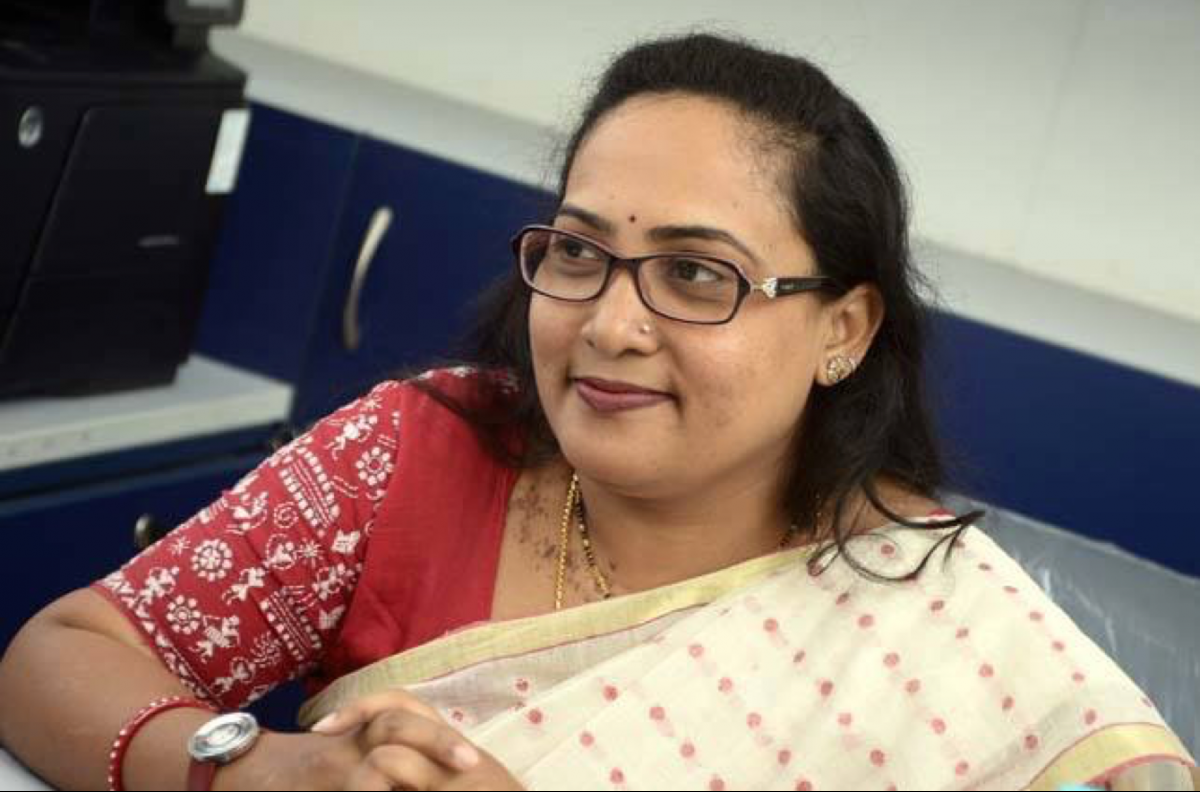
Visiting Scholar seeks to further research on cyber laws for online protection of children
An Interview with Dr. Nagarathna Annappa
‘Cyber forensics’ sounds like the theme of a William Gibson sci-fi novel but to Dr. Nagarathna Annappa, it, along with Criminal and Medical Law, is her main area of research interest. Dr. Annappa is a Visiting Scholar at Robson Hall’s Centre for Human Rights Research throughout February, 2018.
Coming to Robson Hall from the National Law School of India University, Bangalore, Dr. Annappa plans to further her research in the online protection of children. Here, she will be able to conduct library research, consult with field experts, faculties, visit our local law courts and police stations, as well as other centres involved with this area of work.
Dr. Annappa became interested in cyber forensics because of her work as a professor, teaching criminal law and cyber law. Through her teaching, she said she has learned that “cyber technology’s abuse has made children more vulnerable and hence requires a better legal approach.”
She hopes that her study of Canada’s approach to this area of law “will be helpful in understanding methods of combating cyber crimes as against children in specific and protection of children in general.”
Dr. Annappa explained that this area of law affects ordinary people both in India, and in other countries due to increasing use of the internet by children. “Cyber crimes against children, such as child pornography, child grooming, bullying, etc. are also on the increase in both India as well as at other places,” she said, adding, “The approach adopted by countries like Canada in regulating [such cyber crimes] can be a model for many countries, especially developing countries, to adopt.”
Ordinary people should be aware that every user and non-user of cyber technology is a potential victim of cyber crime. “Being aware of possible abuses of technology is an important preventive measure that can be taken against cyber crimes,” she cautioned. “An ordinary person must be aware of such possible abuses [forms of cyber crimes that can easily target any person], possible legal remedies and institutions that can be approached for remedies.”
Among the biggest concerns of Indian government bodies, when it comes to regulating cyber crime, are the “lack of awareness among ordinary people, lack of technical training and tools required for investigation,” Annappa said.
Of concern to both India and Canada, is the fact that because cyber crimes are technical in nature, they require techno-legal solutions. Thus, both countries can learn from each other’s approach. Further, Annappa said, “the general public’s awareness on the issue is something each country can promote. Children are vulnerable in any country to such crimes and hence [this is a] common concern everywhere.”
Countries that we can all look to as precedent-setting and innovative in addressing cyber crime, she suggested, include the USA, the European Union, Canada, Singapore and India.
For students interested in researching this area of law, major gaps Annappa identified as currently needing to be filled include the need to redesign current legal provisions relating to crime investigation and trials, so that they suit this more technological form of crime rather than conventional crime. Methods of evidence collection, preservation and appreciation in the digital scenario also need addressed through a better legal approach, she said. Even students from Robson Hall can help to find solutions by researching cyber crime regulation laws of Canada, laws addressing evidence, jurisdiction, and specifically laws addressing the online protection of children, case law, etc. “Their input to my understanding of the overall Canadian approach, legal system, policing system etc. will be helpful too,” said Annappa.
Robson Hall welcomes our new visiting scholar on her first visit to Manitoba and wishes her every success with her work.






